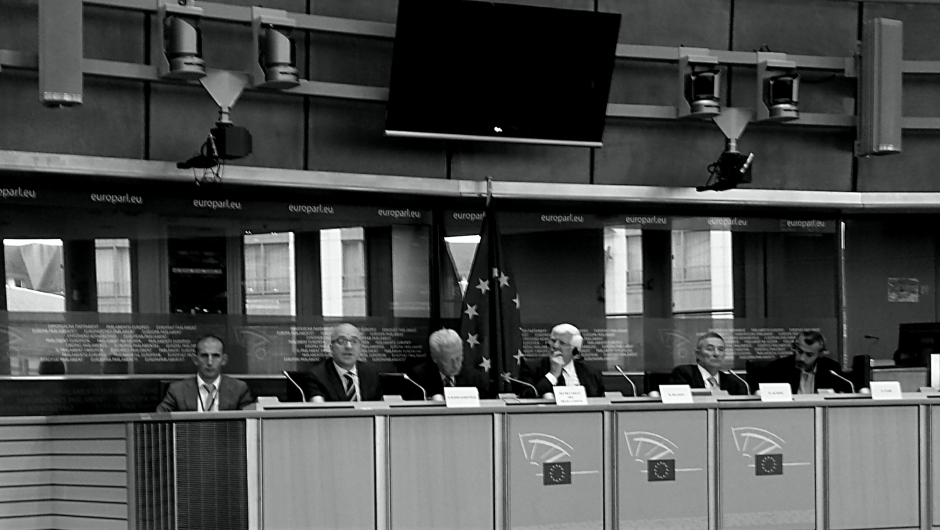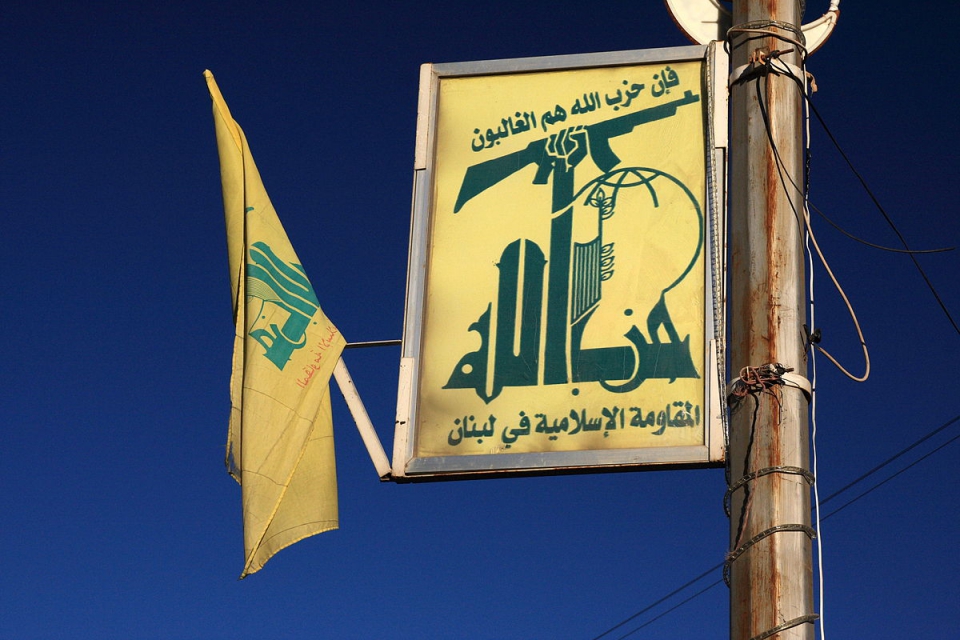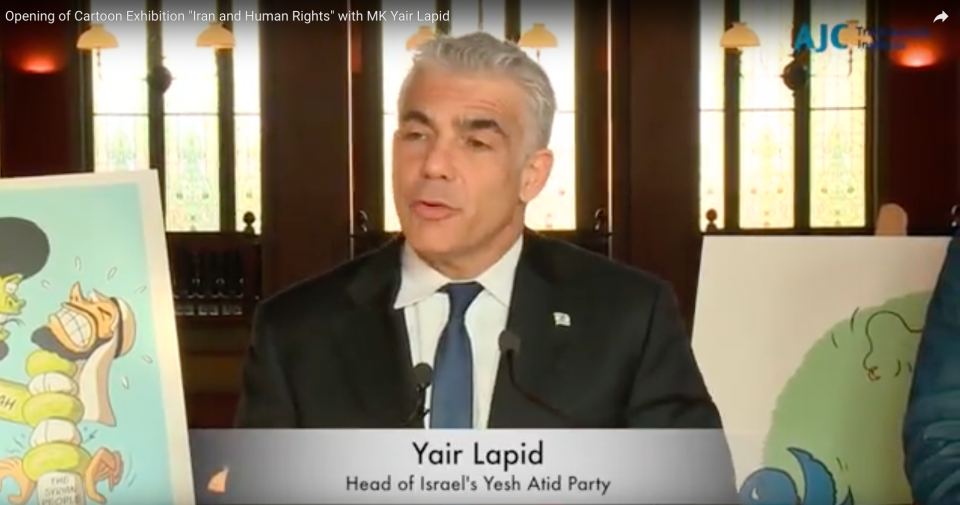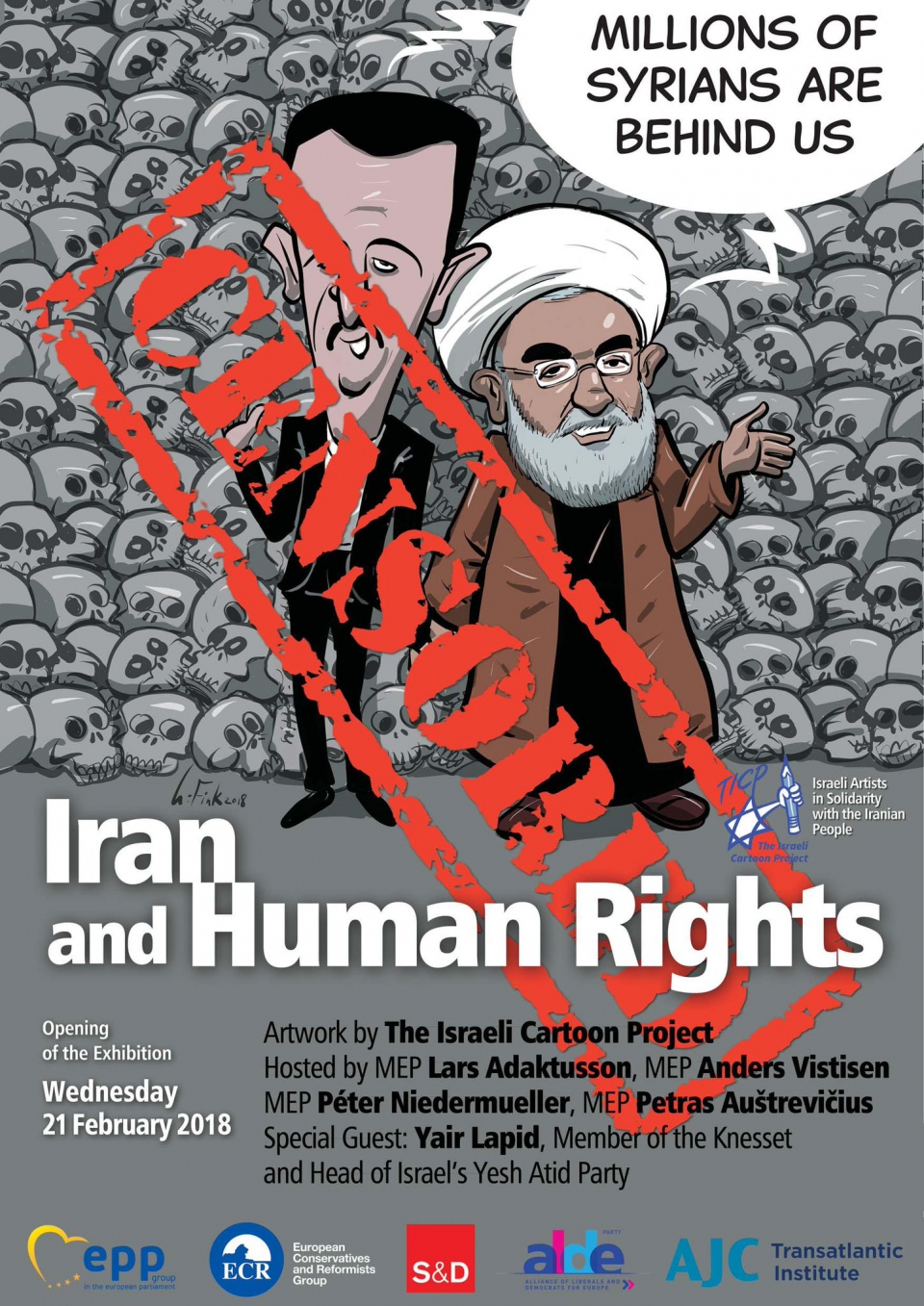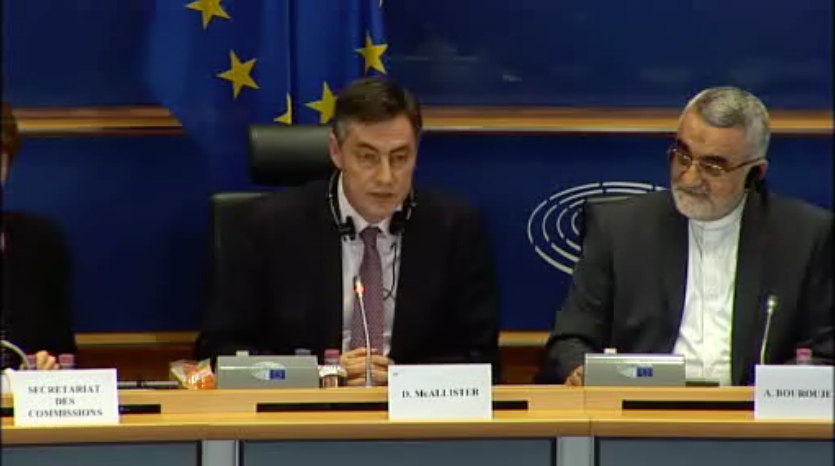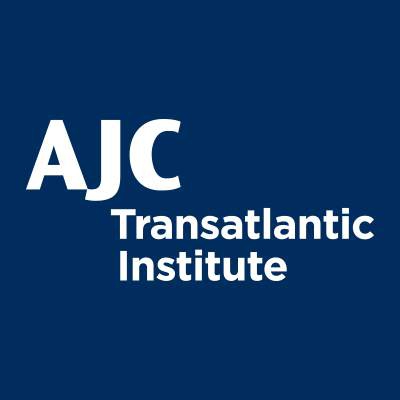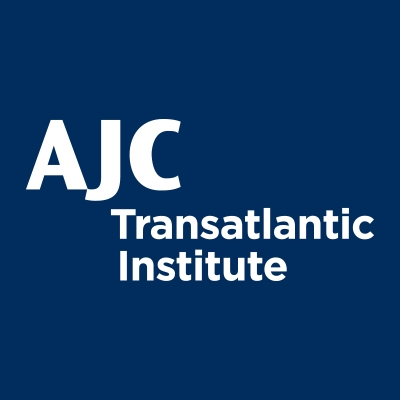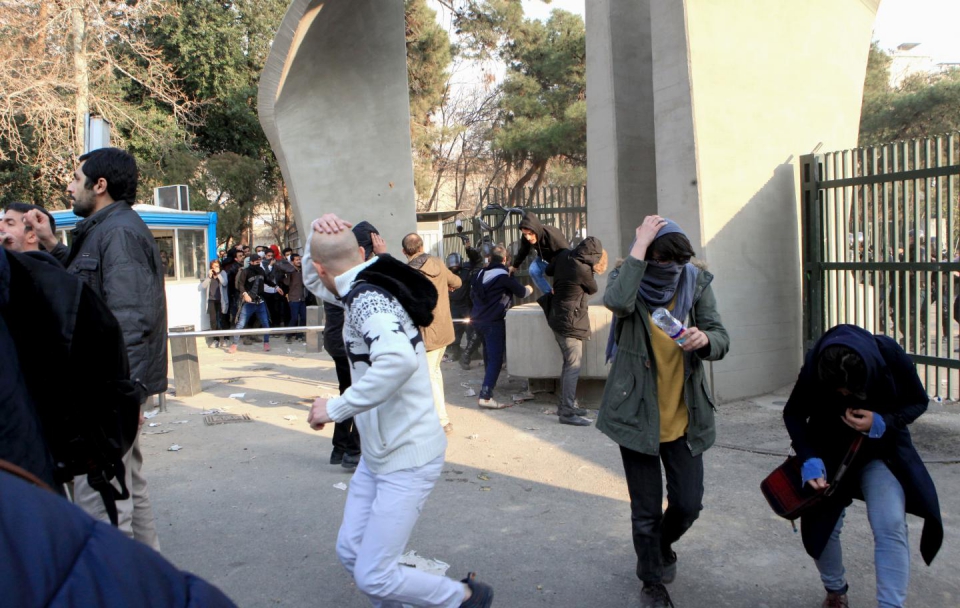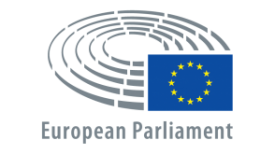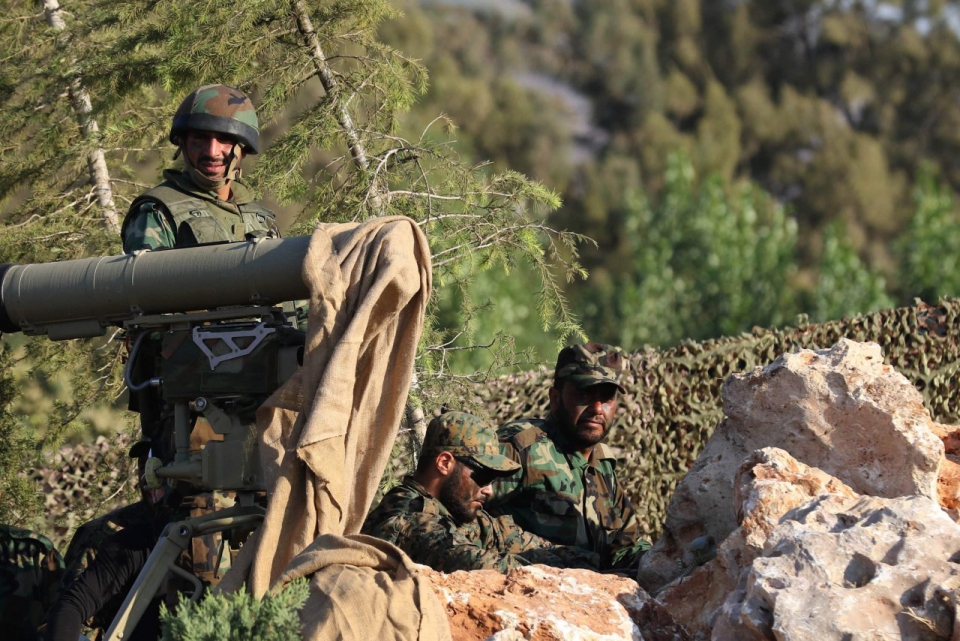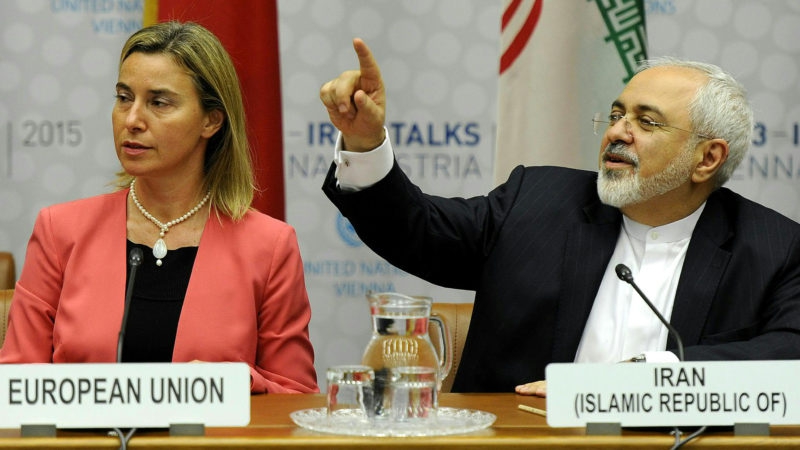Analysis
Remarks: TAI Director Daniel Schwammenthal addresses European Parliament Hearing on Iranian Nuclear Program
"Verify Before Trust—How to Engage Iran in the Nuclear Negotiations"
European Parliament Hearing on Iranian Nuclear Program
17 October 2013
Daniel Schwammenthal: "After a five months break, a new round of talks just concluded yesterday in Geneva, the first since Iranian President Hassan Rouhani took office in August. In an hour-long PowerPoint presentation entitled “An End to the Unnecessary Crisis and a Beginning for Fresh Horizons," Iranian Foreign Minister Mohammad Javad Zarif outlined on Tuesday how his government hopes to end his country’s "walk in the dark". Before discussing the few details that have emerged about this proposal and whether we will soon see Iran walking on the “sunny” side of the street, I would like to explain why some observers, most notably the Israeli Prime Minister, remain rather skeptical about Iran’s true intentions.
When I first addressed this delegation on the issue of Iran’s nuclear program two years ago, I recounted how Tehran has used past negotiations as a ploy to win more time to advance its nuclear weapons program. I quoted former Iranian Nuclear Negotiator Hosein Musavian admitting his duplicity on Iranian TV in 2005: “Thanks to our dealings with Europe, even when we got a 50-day ultimatum, we managed to continue the work for 2 years. This way we carried out the work to complete Natanz.”
I could though have easily used other quotes to illustrate this point, such as the one from Iran’s chief nuclear negotiator between 2003-2005: "While we were talking to the Europeans in Tehran, we were installing equipment in Isfahan,” he noted in a book published in 2011. “By creating a calm environment - a calm environment - we were able to complete the work in Isfahan." The name of this former chief nuclear negotiator is Hassan Rouhani, the new President of Iran. Likewise today, while talking to the E3 Plus 3 in Geneva, Iran continues enriching uranium and installing new centrifuges.
Sure, in terms of style Rouhani is a great improvement over his predecessor. But it is a sad commentary on the state of the Islamic Republic, to paraphrase former President Clinton, if we consider somebody a “moderate” just because he doesn’t go out of his way to deny the Holocaust. Yes, Rouhani is soft-spoken and Western-educated but frankly so are half of the world’s dictators, including that eye-doctor in Damascus who studied in London and still went on to gas and butcher his own people. He does so with significant help from his Iranian friends, a policy, by the way, that has not changed under Rouhani.
Given the enthusiasm for Rouhani in part of the Western media, you could be forgiven for thinking that the new Iranian president is a liberal dissident rather than a loyal regime insider. Let’s not forget that he was one of only eight (out of original 680 candidates) the unelected Guardian Council considered hardline enough to stand for elections. A cleric and early follower and companion of Ayatollah Khomeini, Rouhani became an integral part of the Islamic Regime from Day One: He was a member of Iran’s parliament for 20 years, served on the Supreme Defense Council, and later led for 16 years (1989 to 2005) the Supreme National Security Council, which among other tasks formulates Iran’s nuclear policy. Among his other resume highlights is the role he played in the crackdown against the 1999 student protests.
Listen to his chilling warnings to those pro-democracy demonstrators from July that year: "At dusk yesterday we received a decisive revolutionary order to crush mercilessly and monumentally any move of these opportunist elements wherever it may occur." During this speech, broadcast live on Iranian TV, and periodically interrupted with shouts from the crowd of “Death to Counter-Revolutionaries,” Mr. Rouhani also said that those arrested would be "punished as corrupt of the earth who waged war against God"— a "crime" punishable by death in the eyes of Islamists. Indeed, during those protests some 17 people were killed, hundreds arrested and more than 70 “disappeared.” I am delving into Rouhani’ s biography in such detail because it is important to understand both him and the nature of the regime he is serving as so much hope for a possible diplomatic breakthrough seems to hinge on his persona, or at least the new image he tries to give himself.
Statements such as “a wolf in sheep clothing,” which is what Israeli Prime Minister Netanyahu has called the Iranian president, may sound undiplomatic to some Western ears, but given Rouhani’ s 30 year career in the service of a brutal regime it is still much closer to the historical truth than the by now widely accepted description of Rouhani as a “moderate.” Despite his skepticism and contrary to some accounts in the media, the Israeli Prime Minister does not oppose engagement with Iran. Instead he has been urging the West to negotiate with eyes wide open and a clear understanding of what triggered Iran’s charm offensive in the first place.
“We all want to give diplomacy with Iran a chance to succeed,” the Prime Minister said at the UN earlier this month.” But when it comes to Iran, the greater the pressure, the greater the chance.” Whether just another stalling tactic or a real change of heart, Iran’s new overtures would not have been possible without the combination of economic sanctions with a credible military threat. With regards to the latter, it is important to note that Iran has been very careful not to cross the line of 240 kilograms of 20% enriched uranium Netanyahu drew in his U.N. speech last year. A credible military threat is, as counterintuitive as it may be, key to a peaceful, diplomatic solution.
Economically, Iran is undoubtedly suffering under the sanctions. Iran's oil revenues have dropped from $8 to $3.4 billion a month, of which about $1.5 billion remain frozen in foreign accounts due to sanctions. Unemployment is officially at 13% but in reality probably twice as high. Inflation is up 44% and Iran admitted that the economy had shrunk by 5.4% in the first quarter. Rouhani, who campaigned on economic reforms, and other regime members are likely worried that economic distress could trigger the next popular unrest after the 2009 revolt. To improve the economy, the regime must get rid of the sanctions.
No doubt Tehran will seek sanctions relief for absolute minimum nuclear concessions. Since Tehran knows nobody wants a military confrontation, it may hope that even insufficient concessions could be enough to win over a war-weary West or at least split the Western front. It is therefore key that the US and Europe remain united and in full agreement over their negotiating strategy and goals and that sanctions are not removed until Iran has complied with its international obligations. Very little has been made public so far about the Geneva talks. But despite the improved atmosphere and the unprecedented joint statement between the six world powers and Iran, read out by Catherine Ashton, which said the talks were "substantive and forward looking," the two sides seem to remain still far apart. Even Russia warned against undue optimism. "The result is better than in Almaty (talks held in April) but does not guarantee further progress," Sergey Ryabkov, Russia's deputy foreign minister and Iran negotiator, told Interfax. "There could have been better cooperation."
And Reuters reported that a senior U.S. official said that no breakthroughs had been achieved and many disagreements remained. Other Western diplomats involved in the talks said there had been no narrowing of differences between Tehran and the six nations. So what is it the West should achieve? The answer is quite straightforward. Iran simply needs to comply with six UN Security Council resolutions since 2006 calling on Tehran to suspend all uranium enrichment and plutonium reprocessing activity, answer all questions about its suspected work on a military nuclear program, open up all sites to full IAEA inspections to verify that its program is peaceful.
This obviously means it would have to dismantle those parts that are not peaceful. Such an agreement would require that Iran gets rid of its enriched-uranium stockpiles and close the enrichment facilities of Natanz and Fordow, and the nuclear reactor in Arak. That reactor, once online, could produce enough plutonium for about two bombs a year and simultaneously be immune from attacks as any damage to the reactor could create massive nuclear pollution. But Rouhani himself, despite his alleged moderation, already vowed that “the right to nuclear technology and the right to enrichment in Iran are not negotiable.”
Instead, Iran, according to some media reports, may be ready to only limit its enrichment efforts, such as ending the production of 20% enriched uranium. Iran’s production of highly enriched uranium, which is only a relatively small step removed from weapons grade, has been one of the prime concerns of the West. Suspending 20% uranium enrichment and shipping out the existing stockpile was part of an offer the West made first in May 2012, which Tehran rejected at the time. Now, 17 months later, the situation has dramatically changed as Iran has made great progress in the meantime.
Since May last year Iran has installed thousands of new centrifuges, including at least 1,000 second-generation centrifuges that are several times more effective than the old ones. This means that with these new centrifuges Iran could turn lower enriched uranium almost as quickly into bomb material as it could do now with 20% uranium using old centrifuges. Iran's progress in centrifuge technology has thus given it a breakout capacity even with just low-enriched uranium, meaning it could turn such a stockpile into enough weapons grade uranium for a bomb before the international community may be able to detect it. Leaving Iran with a limited enrichment capacity is fraught with dangers.
Unlike a blanket ban on enrichment, allowing Iran some enrichment capacity gives it more opportunities to cheat. Inspectors would have to be able to monitor each stage of the nuclear fuel cycle—uranium mining and conversion, centrifuge research and production, and storage—to ensure compliance. And of course Iran could copy the North Korean model and, once economic sanctions and military pressures are removed, expel inspectors, pull out of the Non-Proliferation Treaty and make a dash for a bomb. We all hope that new round of negotiations is a genuine opportunity to resolve this crisis peacefully. Nobody wants to see a military confrontation. But in the words of US Secretary of State John Kerry, the only thing worse than no deal is a bad deal, one that would get rid of the sanctions while keeping enough nuclear weapons capability in Iranian hands that would allow them to break out a time of their choosing.
